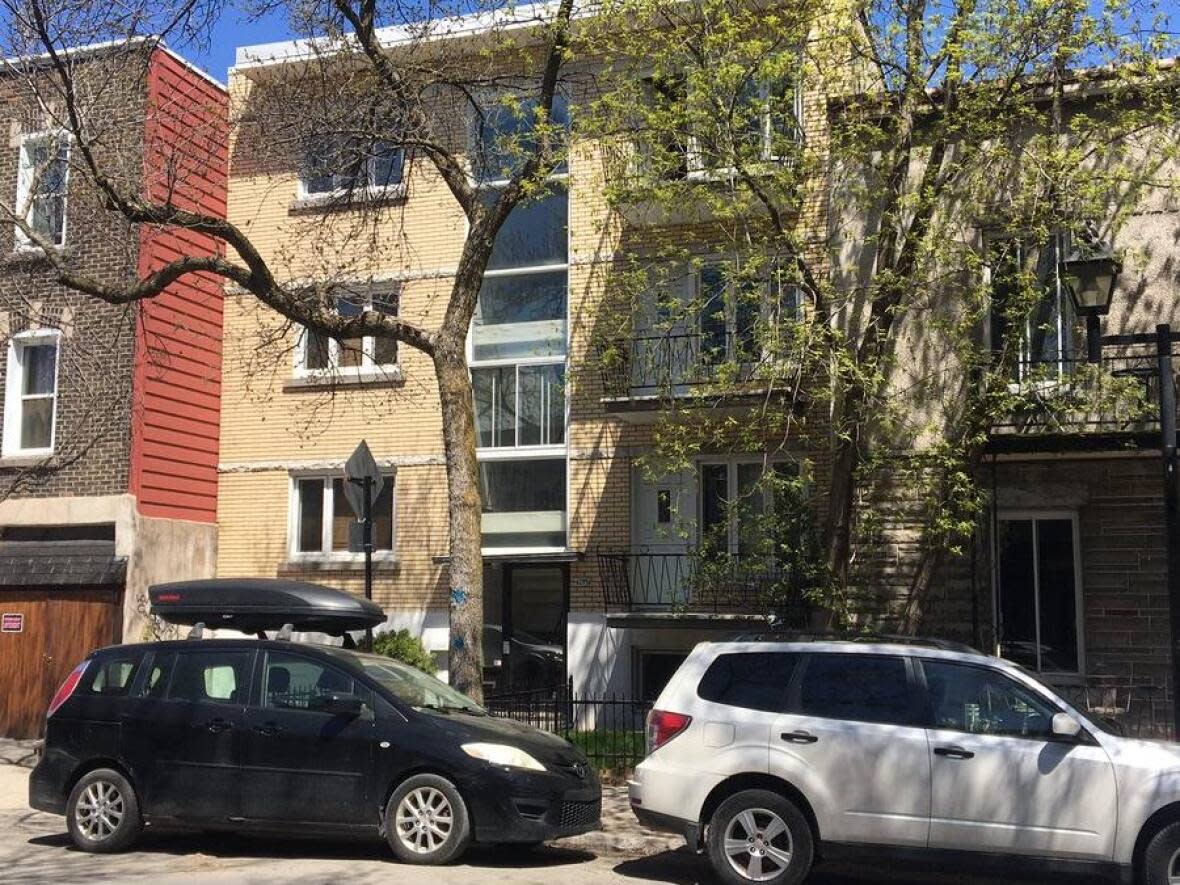This entire apartment building in Montreal's Rosemont borough is Airbnbs

A Montreal apartment building is being used entirely to host Airbnbs, Radio-Canada has learned.
The building, comprised of four three-bedroom units on Alma Street in Rosemont–La Petite-Patrie, is in an area where short-term rentals like Airbnb are supposed to be banned.
The online listing boasts that each apartment can fit up to 16 people: four per bedroom, and four in the living room.
"There are parties that never stop, there are raves that last until 11 a.m. the next morning," said one neighbour, who asked to remain anonymous. "I've seen police come by at least twice, but there were others I didn't see myself. It's back and forth."
By repeatedly renting the apartments, the owner of the building is in violation of both provincial and municipal regulations. However, elected officials in the borough say they have little power to enforce the rules.
What the rules say
"What you're describing, which is your nightmare, is ours too," said Rosemont–La Petite-Patrie Mayor François Limoges.
Since May 2020, anyone wishing to rent out their main or secondary residence must obtain a registration number with the Quebec tourism group, the Corporation de l'industrie touristique du Québec. Neglecting to do so can lead to fines range from $2,500 to $25,000.
In addition, the borough of Rosemont–La Petite-Patrie has banned short-term rentals everywhere except a stretch of St-Hubert Street known as the Plaza Saint-Hubert.
But to enforce it, someone would need to bring the offender to Superior Court. If they are found to be in violation, the expected fine would only be $300 — less than one night's stay at the Alma Street building.
Limoges said there is very little support from the province, which dictates what they can and can't do to enforce the law.
"To go to court, it takes direct evidence," Limoges said. "You can't have circumstantial evidence, meaning an inspector can't go to Airbnb, take a screenshot of the page and then go to court with that. It is not considered sufficient."
Building to be condos
The owner of the building on Alma Street admitted to Radio-Canada that he didn't obtain registration numbers for his units.
He said that the short-term rentals were temporary, while he tried to sort out the permits required to turn the building's rental apartments into condos. His goal is to have them converted by the end of the year.
Airbnb said in a statement that it takes "all necessary measures" to ensure that hosts comply with Quebec's rules and regulations. It did not explain why the platform allows listings that do not respect the laws.
"There really is work to be done with online platforms, to force them to comply with the regulations," said Dominique Ollivier, the president of Montreal's executive committee and the city councillor for Vieux-Rosemont.
To avoid compromising its investigations, Revenu Québec did not disclose how many inspectors it has or how it investigates short-term rental units.
However, the statements of offence issued under the rules have increased more than tenfold in the past two years, from 135 in 2019-2020 to 1,747 in 2021-2022 (as of February).


